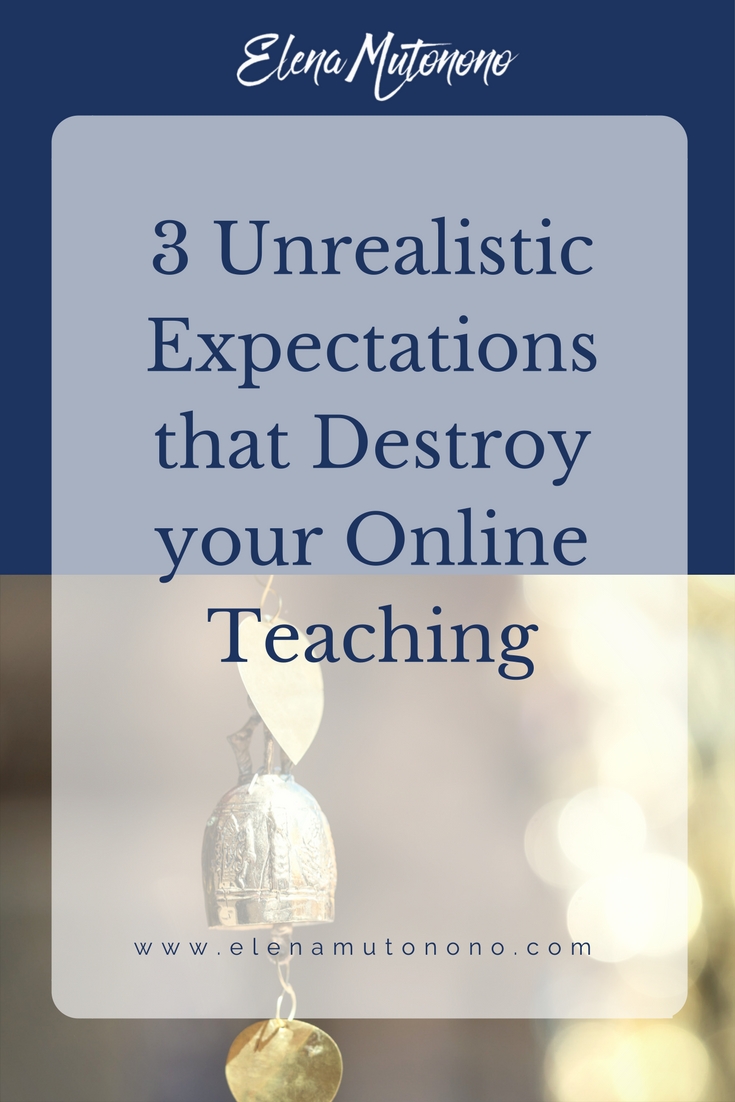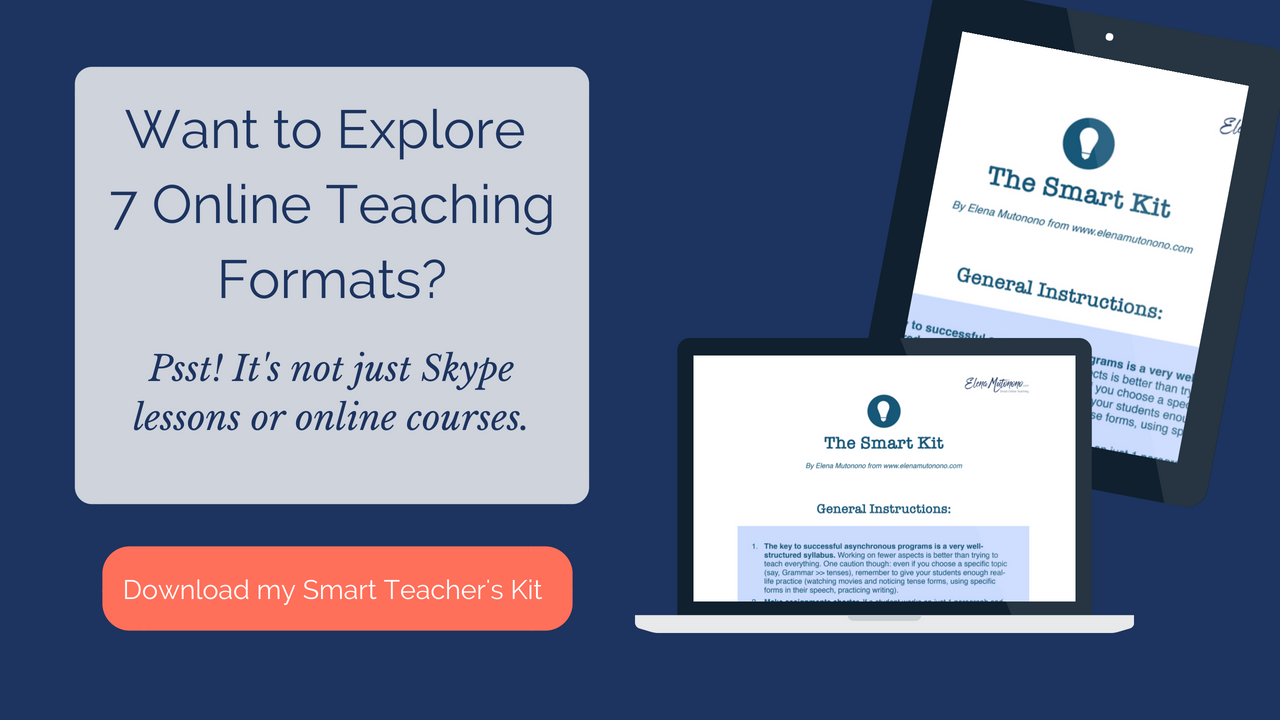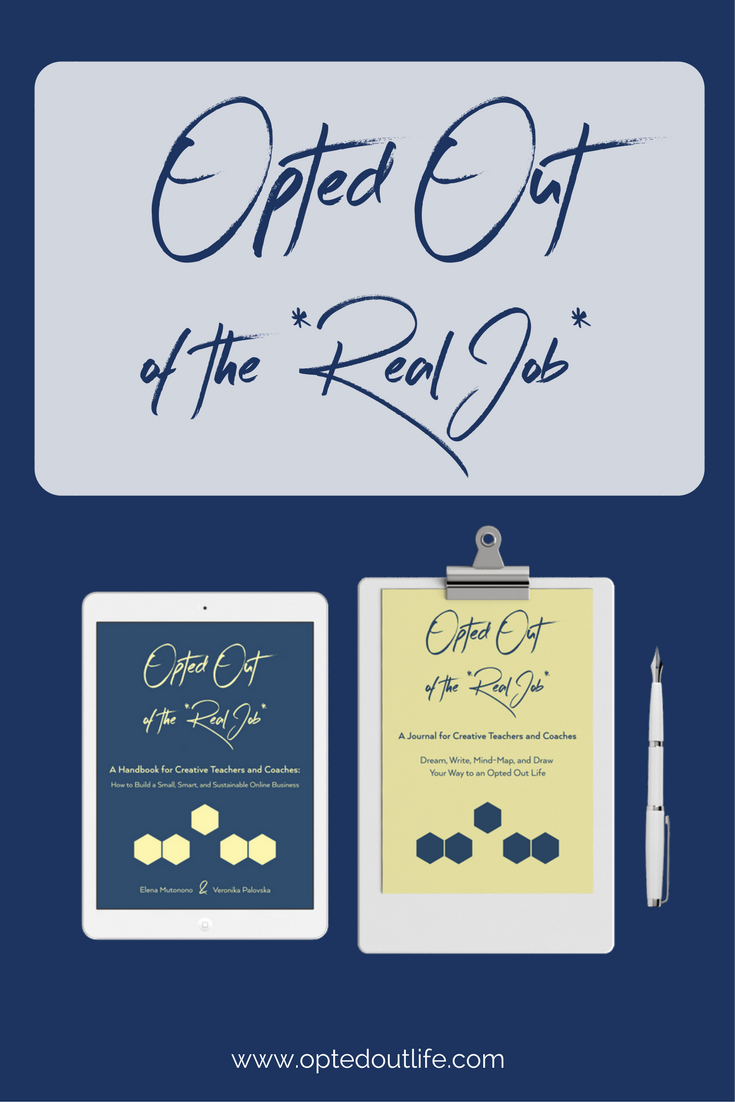Am I the only one who has heard this?
- You’ve got 10k followers on instagram, you will most likely sell 1,000 courses and make at least $50k on your first launch!
- You’ve got 3k subscribers on your list, so selling lesson packages to 10 people should be a breeze.
- The more diverse your packages are the more students you will attract. So Grammar Mondays, Listening Wednesdays and Pronunciation Fridays are fantastic (this used to be my editorial calendar, by the way until about 2 years ago).
Today I want to talk about 3 unrealistic expectations that destroy your online teaching.
Where do these expectations come from?
- we’re attracted by the “shiny object syndrome,” and our fascination with numbers makes it hard to set up a realistic strategy for your business.
- we listen to the “gurus” who tell us that our success depends on a very specific formula (created by them) that helps you do A, B, and C.
- we tend to think that more is always better. So we put in more hours because (we think) that’s the only way to move ahead.
So what are these 3 expectations:
- Higher number of fans/followers/subscribers mean higher sales.
- Only specific programs can sell well.
- Writing to your audience consistently will decrease sales.
Unrealistic expectation #1: Higher numbers mean higher sales.
Here’s what this means, practically:
- Get as many followers/fans/subscribers as possible.
- Teach as many students as you can.
- The more hours you teach a week, the more successful you are.
- The more people you have in your network, the more products you will sell.
- The more often you blog, the more you will sell.
This mentality grows out of our greed. We have the big-numbers disease. We pat ourselves on the back because we have the XXX number of followers, and we automatically project insanely successful launches.
But we really can’t sell to multitudes until we learn to sell to one.
“Selling” doesn’t start with the price tag and a product description. It starts with much deeper discoveries. Here’s what “selling to one” actually means:
- discover your own unique niche and offer your services to people who understand what you’re passionate about. By the way, your niche shouldn’t be determined by “how much people will pay me for this.”
- create with your ideal client in mind. I know, I know. This is sounds cliche. What this means though is writing the content for a specific audience, not for some “black hole” on the other side of my screen.
- get to know your audience and communicate consistently. Consistent communication means you care.
Focus on the three above, and your numbers won’t matter. Because you’ll have sales anyway. You’ll write to 8 and sell 6, without the “bells and whistles.” I share with you how I do it in my Road Map Training available for the Smart Online Teacher’s Library participants.
Want to #teach #online? Beware of these unrealistic expectations. #teacherpreneur Click To Tweet

Unrealistic expectation #2: only specific programs can sell well.
Let’s say you really enjoy writing and you want to create a writing lab for your clients. This, you think, is going to be your niche.
But you have doubts. Here’s what you’ll say:
- My students won’t buy this.
- Nobody wants to improve their writing.
- Teaching writing is old-fashioned.
- How can I charge for this?
All of this comes from our own, often limited, ideas of how a person can learn a language. Why limited? The majority of us begin teaching on a large e-learning market place, and we think that skype lessons is the only successful format.
Or we hear somebody say that all you need is “create a course” and then you won’t have to teach 1:1, but really – are these the only two formats that exist out there? And is it true to expect that just because “writing isn’t popular” (whoever said that?) we aren’t going to make money doing what we love (teaching writing for instance)?
Unrealistic expectation #3: writing to your audience consistently will decrease sales.
Let’s face it: we all hate marketing.
But that’s because we have (again) our own idea of what marketing is all about. We expect people to hate us if we are going to email them on a weekly basis. We also think that email marketing is just all about self-promotion.
You don’t believe me? Here’s what one of my clients wrote on the forum the other day:
Before [learning how to use email], I really thought email marketing was just something annoying or in-your-face/buy-my-stuff, but when you can genuinely bring value and sincerely help people, there’s actually something beneficial about the process as long as I really strive to avoid sending spam or useless information.
So because we look at email marketing as a buy-my-stuff banner, we shy away from engaging with our audience on a regular basis. Then we think that our audience will thank us for it and as a token of gratitude for not being overtly sales-y they will buy our product/service.
The reality however is different. When you don’t take the time to engage and genuinely bring value to your would-be customers, they forget about you, so when you try to sell them something their first reaction would be,
“Who’s this and why are they selling this to me?”
Marketing is caring about the deepest needs of your audience and offering the help that people need. When people need this help they’re going to buy it, and they won’t see you as a salesperson, nor will they deliberate about the price.
A Road map to a Successful Online Business
Have you somehow adopted one of these unrealistic expectations and then tried to build your entire business/strategy based on it? Ever feel like you need a sense of direction, a map and a focus on your priorities? Please share in the comments how your unrealistic expectations affected your work and focus!



 Welcome to my nook where *Big Magic* happens. My name is Elena Mutonono, I help small business owners package their services as digital products and sell them online. I want you to work smarter, not harder. Increase your impact beyond your current face-to-face clients. Grow your business as you reach more people all over the world.
Welcome to my nook where *Big Magic* happens. My name is Elena Mutonono, I help small business owners package their services as digital products and sell them online. I want you to work smarter, not harder. Increase your impact beyond your current face-to-face clients. Grow your business as you reach more people all over the world.







